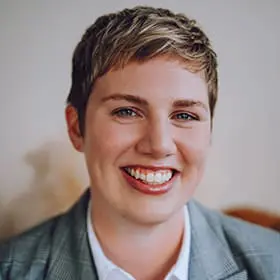
Insights
July 14, 2023
Developing Financial Independence
In Family Needs, Wealth Strategy

Summer: A time of celebrating independence! The caps and gowns of late June give way to BBQs and 4th of July fireworks. What’s easily forgotten during this Summertime bliss is that for our nation’s Founding Fathers, it was hardly a smooth path to independence. They were metaphorically teenagers fed up with tightening rules and curfews, slamming the door while storming out of the house. The parents wanted indefinite control, while the child felt they were grown and ready for life on their own. What was once a decent relationship spiraled into a decade of messy conflict (i.e., Boston Tea Party) and eventually the Revolutionary War.
Where this metaphor falls apart is that as parents, we want our children to break free from dependence and financially thrive on their own in this world. So how do we navigate this complex transition and not only preserve, but strengthen our relationship with our children in the process?
It’s certainly not easy or straightforward. Who pays for gas? Insurance? Student loans? Those concert tickets at the Gorge? What about when moving out and going to college? Like most things in parenting, no two situations are identical, and a little bit of tinkering is usually required for even the best initiative or system from the latest parenting guru.
What does the average path towards financial independence look like today? For context, a recent poll by Savings.com[1] noted that, “Forty-five percent of parents of adult children provide financial support for at least one grown offspring.” This begs the question, is that generally a positive thing or setting up a generation for financial helplessness down the road?
Fostering financial independence can start at a young age, perhaps without either you or your child even realizing that it’s happening. In a letter to his newborn, best-selling author and finance expert Morgan Housel tells her that, “Your parents will work hard to support you and open the doors of opportunity. But we’re not going to spoil you. We’re not trying to be mean. But no one can learn the value of a dollar without experiencing its scarcity.
To hear directly from parents and teenagers that are amid the path to financial independence, we interviewed a handful of our advisors and their young-adult children to learn what this tricky endeavor is like in today’s world. Our interviewees ranged from 16 to 24 years old, with a range of financial support, and varying number of siblings.
In general, parents were fans of systems put in place to increase ownership and responsibility by their kids. Even if an allowance system was relatively small and seemingly insignificant early, it helped develop good habits and an open dialogue about money, perhaps even before the most extreme of adolescent hormones kicked in. Parents were also fans of their kids getting familiar with their own banking app and a debit card, to see their expenses and track inflows and outflows.
On the other side of the equation, most in this group of young adults were looking forward to more financial independence and the rewarding feeling that comes along with affording a place to live, car to drive, and even making investments. A high school job was also a common denominator among financially confident young adults. In terms of worries about the future, the apples didn’t fall far from the trees… taxes.
Responses from Coldstream Parents
1. What’s something you’re thankful you did to encourage financial independence with your kids?
“We’ve emphasized that financial independence also means financial independence of your parents. This started when they first earned their own income and the responsibility of using your own income for entertainment or “wants.” And it ends with the expectation that they’ll be fully financially independent upon graduation from college. We understand that this can’t always be the case for every child, but for our girls it’s a reasonable expectation. As they began having earned income, we’ve offered to match Roth IRA contributions each year, which they’ve both done as their income has increased. They like 100% matches. 😊 We started early with education around the importance of saving, sharing and spending, and we’ve never shied away from the topic of money. It’s been a part of the conversation, mostly as a tool for good, and not something to be a primary focus to determine success. We’ve tried to teach delayed gratification – wait a day or two before making any bigger purchases.” – Duane Duim (Daughters 22 and 19). Pictured to the left.
“Taking the time to set up bank accounts and debit cards for each of my children… this was a lot more time consuming then you would imagine! But it’s critical to start learning how to budget and monitor the balance in their accounts.” – Anne Marie Stonich (Sons 14 and 16, Daughter 18)
“Live within their means and begin saving early. Once they learned about compound interest – a light clicked on. Interest is the interest you earn on interest.” – Eric Schuehle (Sons 21 and 19)
“I had my daughter file her own tax return as soon as she started working part time. Although I’m paying her rent while she is in college, I put a lump sum in her bank account, and she has to pay the bills. Similarly, her father gives her an allowance for food, and she has to budget. I think this has helped her start the motions of budgeting and thinking about taxes.” – Rachel McCracken (Daughter, 20)
“We set expectations starting at an early age and in incremental steps that helped to start building responsibility (financial and otherwise) in a way that was intended to prepare them for life as an independent adult. It was difficult at times watching them make sacrifices to pay for these things, since we knew that we had resources to provide them. However, we recognized that hard work and sacrifice are the hallmarks of a successful adult, so it would have been counter-productive in the long run for us to take these challenging experiences away from them. Children cannot become successful adults if their parents never take the training wheels off.” – EJ Brink (Sons 24, 21, Daughter 17)
2. Looking back, is there anything you wish you’d done, or done differently at an earlier point?
 “I wish we had established a consistent allowance so that we funded small amounts into their bank account (to add to what they earned during summer jobs). That way we could have set the expectation that they are responsible for paying for clothes and discretionary purchases… put the ball in their court to make more budgeting decisions at an earlier age.” – Anne Marie Stonich (Sons 14 and 16, Daughter 18). Pictured to the left.
“I wish we had established a consistent allowance so that we funded small amounts into their bank account (to add to what they earned during summer jobs). That way we could have set the expectation that they are responsible for paying for clothes and discretionary purchases… put the ball in their court to make more budgeting decisions at an earlier age.” – Anne Marie Stonich (Sons 14 and 16, Daughter 18). Pictured to the left.
“Provided reading materials on investing and basic finance. The subject isn’t taught enough or at all in school.” – Eric Schuehle (Sons 21 and 19)
Excel, An Oldie But a Goodie:
“I was surprised to have introduced my older daughter Emma to a very basic excel spreadsheet to use for budgeting, which she still uses two years later. Introduced them to YNAB and Mint, but neither took.” – Duane Duim (Daughters 22 and 19)
“I built out a basic excel spreadsheet and they could change the invest amount and the interest rate. This helped them understand the power of investing.” – Eric Schuehle (Sons 21 and 19)
Any Memorable Anecdotes to Share?

“Somehow, my daughter seems to think she should have an Audi SUV for her first car and I’m not quite sure how she got the impression that is okay! She is trying to skip the frugal stage which is unsettling to me!” – Rachel McCracken (Daughter, 20). Pictured to the left.
“I recently told my 18 year old daughter that we would start splitting a coaching expense that we had been covering for some time, and her response was quite enlightening… “well, I’m not going to use that coach anymore if I have to pay for it!” Sharing expenses forces kids to think about how much they truly value what you are paying for and will ultimately drive different decision making. Involve them early.” – Anne Marie Stonich (Sons 14 and 16, Daughter 18)
“My older son bought Bitcoin (thinking it as an easy way to make money) and lost half of the investment in a month. My younger son bought Nvidia a few years ago after doing some research and he has done very well. A little research and patience made a difference.” – Eric Schuehle (Sons 21 and 19)
Responses from the Young Adults
1. What does financial independence mean to you?
“Being able to pay for all your own expenses without your parents’ help.” (Age 16)
“Financial independence to me means paying for my own personal expenses and understanding money and how to spend it responsibly.” (Age 18)
“I think financial independence means you’re free of worries. You don’t have to depend on your next paycheck. You don’t have to worry about if food is going to be on the table, if you have a place to sleep tonight or if you have enough to cover rent for this month. It means you have enough to spend on things you don’t necessarily need. Basically you’re free.” (Age 15)
“Being responsible for all of my own living expenses and being able to rely on myself for financial security.” (Age 21)
“Being able to support myself and not have to rely on family members to support me financially.” (Age 20)
“The ability to pay for your own expenses without relying on others to help out.” ( Age 19)
2. What’s something that you’re looking forward to financially doing yourself?
“Paying for fun trips.” (Age 16)
“Being able to afford my own car, house, etc.” (Age 18)
“I’m excited to make big investments. I’m starting to make small 100-200 dollar investments. I can’t wait until I can invest bigger amounts so the effect is bigger.” (Age 14)
“I look forward to buying my own house someday with my hard-earned money.” (Age 17)
“I’m looking forward to being responsible for my own groceries and food bills and just generally having the freedom to make my own financial decisions.” (Age 21)
“Buying myself a car soon and eventually paying for my own housing and school.” (Age 20)
“Some form of housing.” (Age 19)
3. What are you most nervous or unsure about financially doing yourself?
“I am most nervous about having to figure out things like taxes, insurance, and other complicated stuff.” (Age 18)
“As much as I am excited, I am very nervous to make big purchases/investments. Putting a large sum of money down and risking it being gone forever. The risk of losing my hard earned money is what I fear most.” (Age 19)
“I’m most nervous about being financially responsible for medical bills.” (Age 21)
“Balancing between the different payments I’ll have when I’m fully financially independent.” (Age 20)
“Investing on my own and dealing with the volatility.” (Age 19)
[1] Klongpayabal, Beth. “45 Percent of Parents Still Cover Costs for Their Adult Children.” Savings.com, 10 May 2023, www.savings.com/insights/financial-support-for-adult-children-study.
Related Articles

June 27, 2025
Diversified Estate Planning for LGBTQ+ Families


June 20, 2025
Incorporating a “Die with Zero” Philosophy into Your Long-Term Financial Plan



June 9, 2025
Helping children build wealth of their own: why the Roth IRA is an important gifting vehicle.

